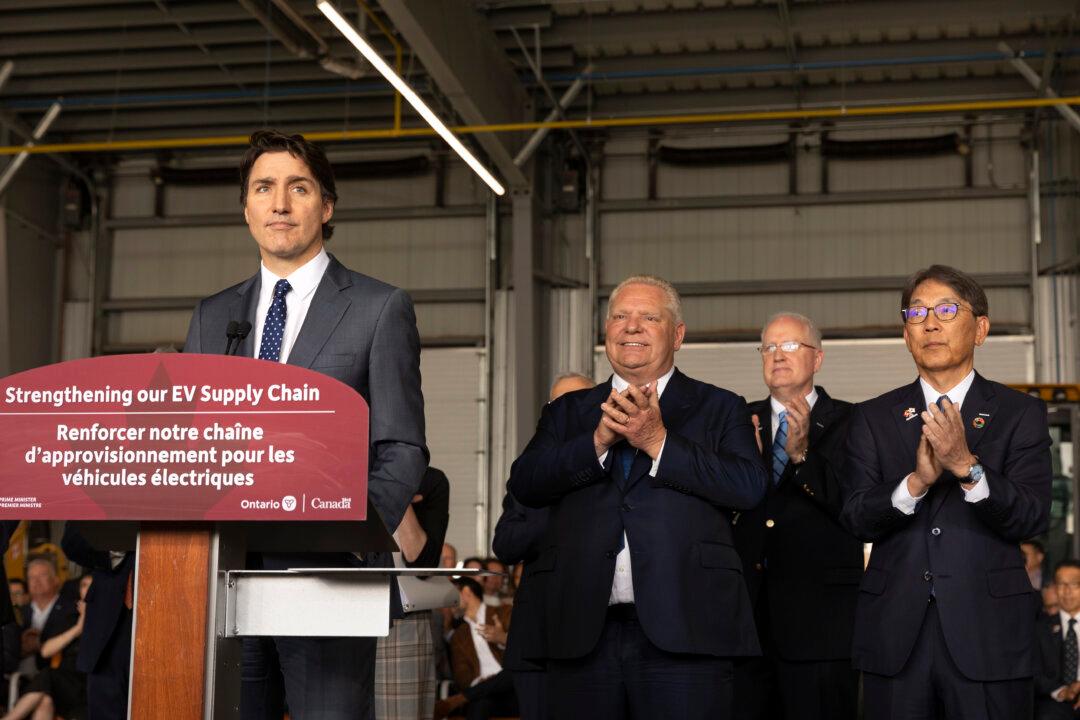A small city in Ontario’s Niagara Region will be the future site of a $1.6-billion manufacturing plant that produces key components for electric vehicle batteries.
Japanese company Asahi Kasei Corp. will set up Canada’s first lithium ion battery separator plant in Port Colborne, Prime Minister Justin Trudeau and Ontario Premier Doug Ford announced at a May 14 press conference. The Port Colborne battery parts facility is the first of two such plants coming to Ontario as part of Honda’s previously announced $15-billion investment in the province’s electric vehicle supply chain.





